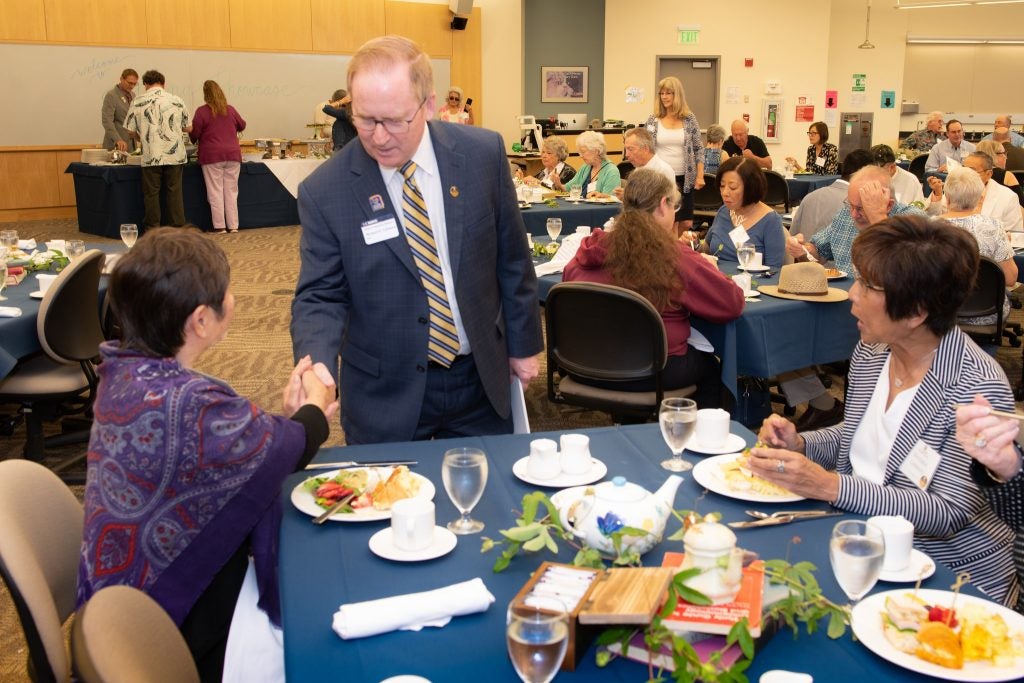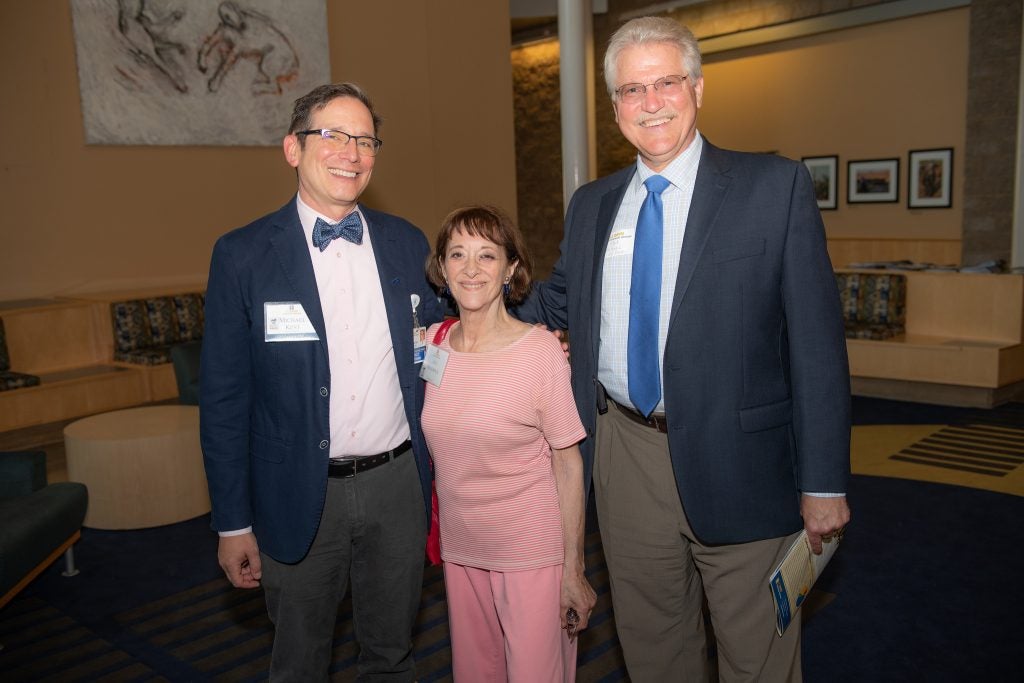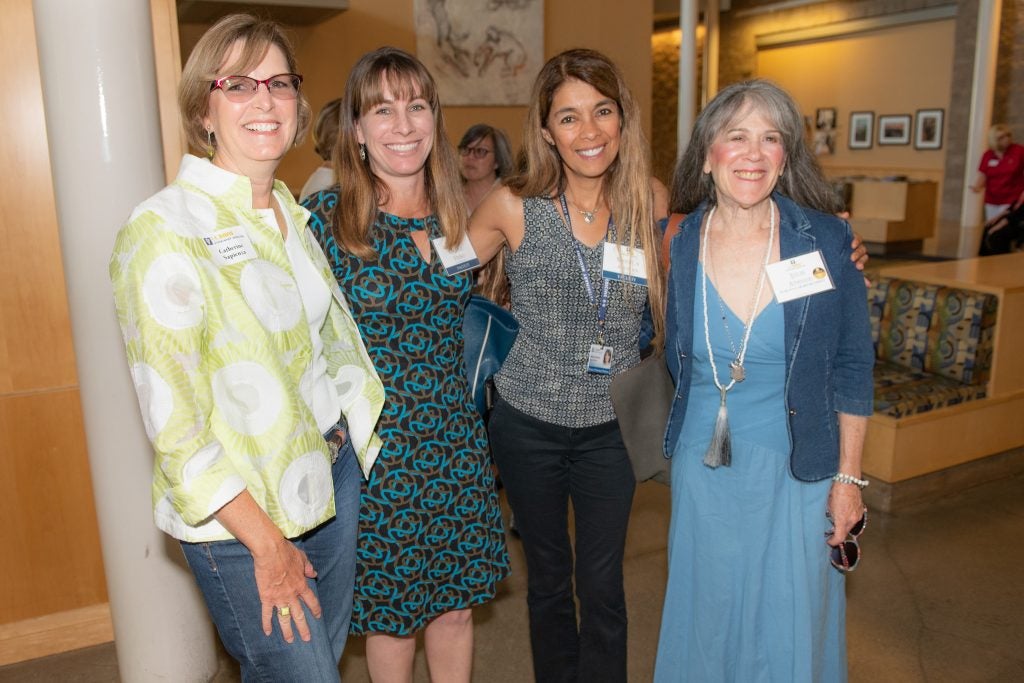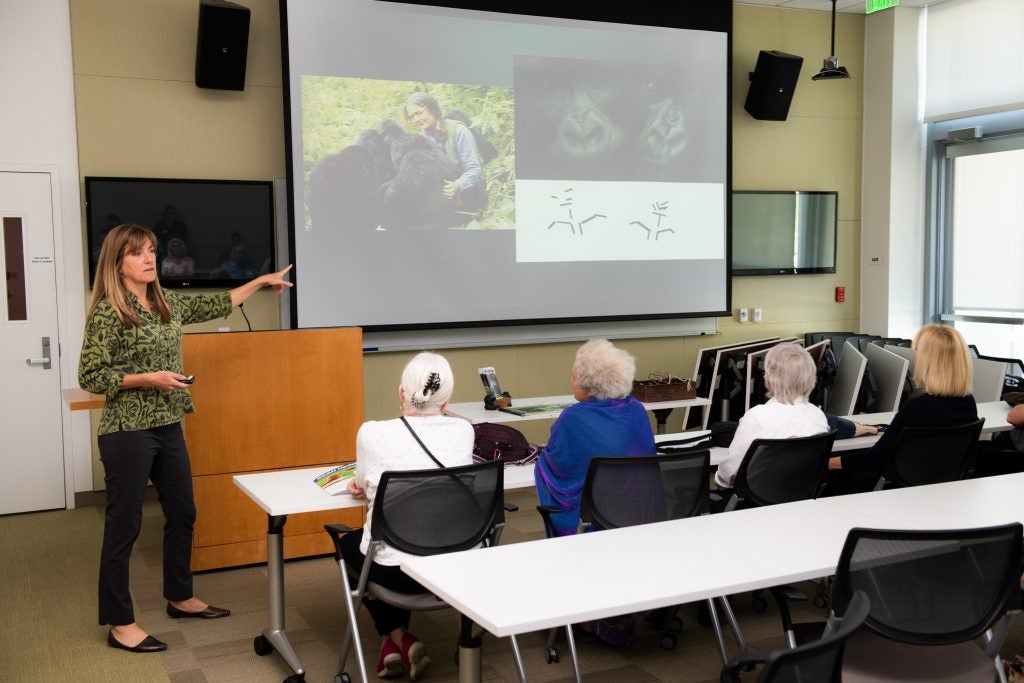“Curiosity is the wick in the candle of learning.” –William Arthur Ward
A basic characteristic to becoming a good student, an astute researcher, or insightful clinician is curiosity. The ability to ask questions to learn new information and explore new paths of knowledge is forged from the trait of being inquisitive. Our school has led veterinary medicine and contributed to fundamental knowledge in biomedical and agricultural research by talented faculty, staff, and students who seek new and innovative ways to advance the health of animals, people, and our planet. Many of these advances were on full display at our Spring Showcase, an annual event to highlight the accomplishments and aspirations of the Centers for Companion Animal Health (CCAH), Center for Equine Health (CEH), and our Karen C. Drayer Wildlife Health Center (KCDWHC).
The CCAH, led by Director Dr. Michael Kent, continues to build upon a rich history of advancing the health of companion animals through research grants, resident project funds, and equipment grants. At the Showcase, Dr. Kent reviewed how the CCAH provided over $1.5 million in research support this past year, made possibly by generous donations from grateful clients, foundations, and individuals united in their passion to help discover new ways to help animals through studies to solve the toughest problems faced in veterinary medicine. In turn, those faculty, residents, and students who are the beneficiaries of this support have responded by creating new knowledge that is at the leading edge of understanding in veterinary medicine. From the discovery of genetic clues to explain diseases in chondrodysplasia in dogs and humans, to bringing new hope to shelter animals through evidenced-based studies to reduce disease and increase adoptions, CCAH funded investigators envision ideas that lead to innovative solutions in animal health.
Dr. Carrie Finno, recently named Gregory L. Ferraro Endowed CEH Director, provided an overview of how the CEH uses donor gifts to fund pilot grants for faculty, support graduate students and resident projects, and leverage support to purchase novel equipment to diagnosis the most vexing problems of horses. The CEH has an extensive and rich legacy in funding studies to understand basic mechanisms of diseases in horses to finding practical ways to support the health of the equine industry in California. Generous donors provided support that allowed CEH funded investigators to advance research initiatives that maximized resources, expertise, and cutting-edge technology while finding new genetic links to cancer in horses, developing new imaging methods to diagnosis lameness, and investigating new ways to diagnosis and comprehend infectious diseases of horses.
Co-director Dr. Kirsten Gilardi of the Karen C. Drayer Wildlife Health Center provided a compelling update of the work investigators have accomplish this past year through science, technology and education. As a major component of the One Health Institute, the dedicated professionals of the KCDWHC recognize that the health of domestic animals, wildlife, people and the environment are inextricably linked. Their people and programs focus on free-ranging and captive terrestrial and aquatic wild animals, seeking to restore ecosystem health and address complex issues like zoonotic diseases that impact animals and humans. Their investigators, utilizing a one health approach, protect wildlife from diverse threats ranging from oil spills to reduction of habitat. The people of the KCDWHC exemplify the values our society places on animals in their natural habitat and demonstrate our responsibility to be good stewards of our planet’s resources.
At the heart of all of this past year’s discoveries are the people of our centers of excellence, who at their core have the ability to question dogma and find novel approaches to advance animal, environmental, and human health. Their drive is sparked by their innate interest in creating new knowledge that brings illumination to our world.




